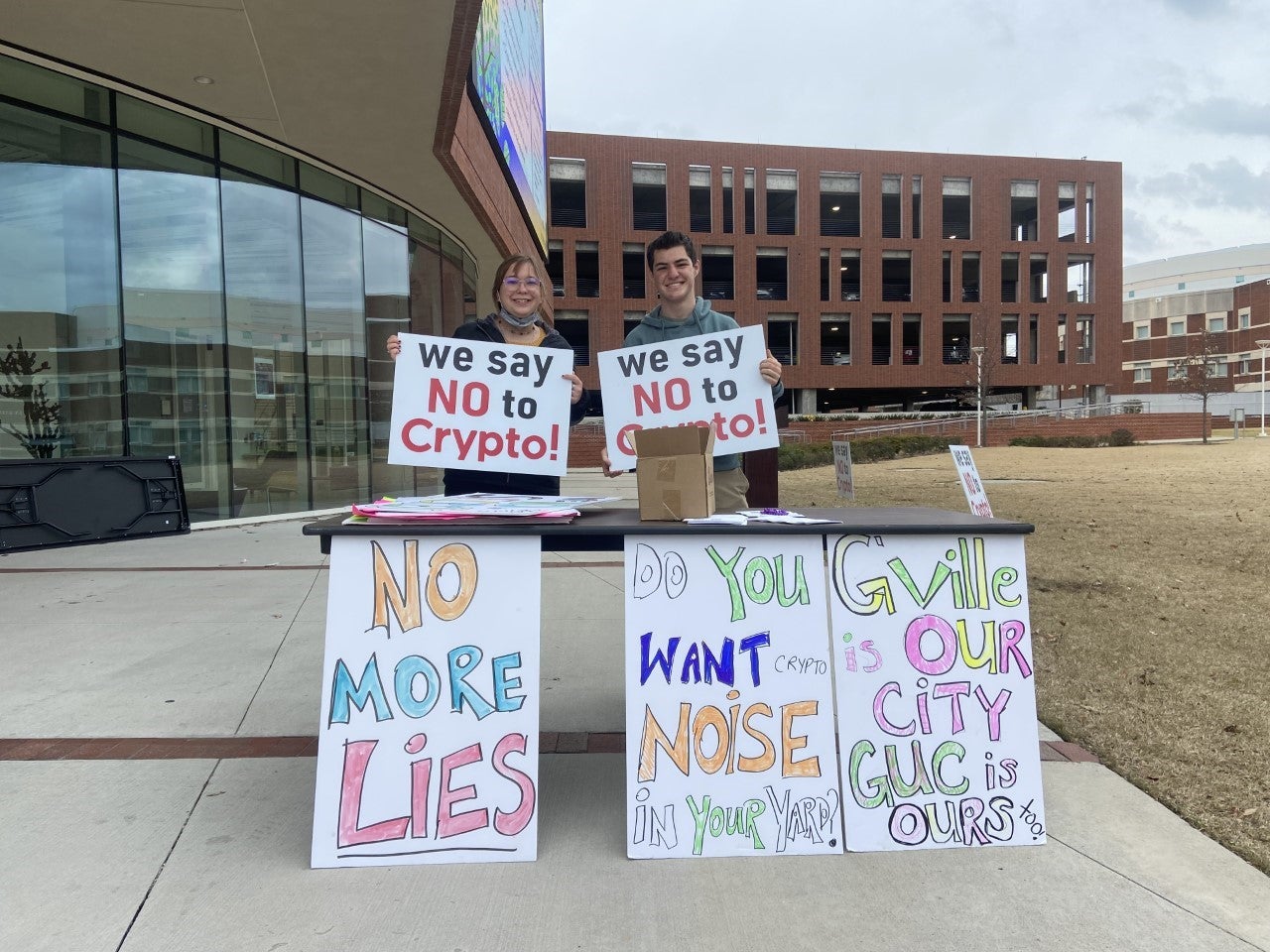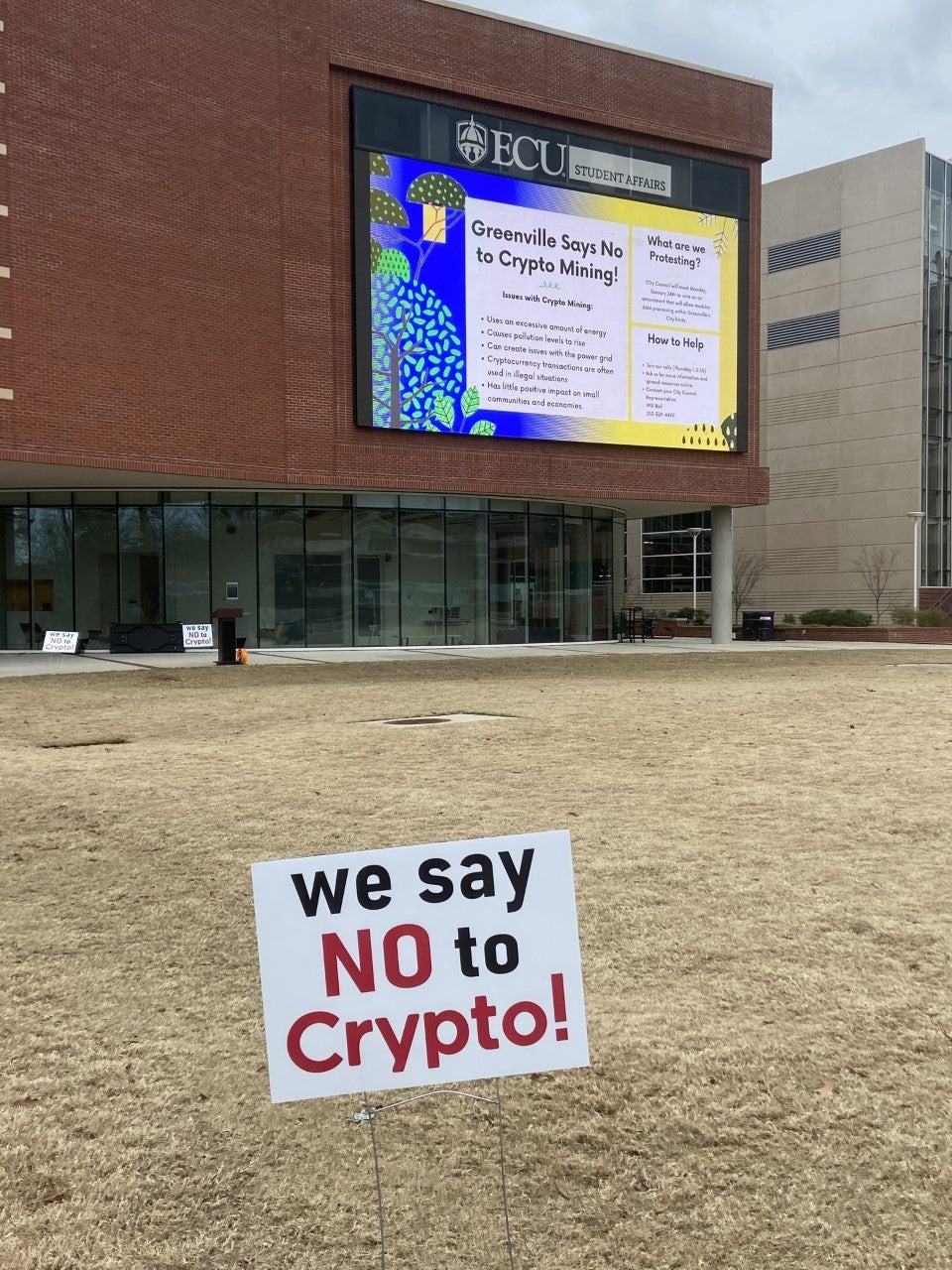Crypto Mining in Greenville
On January 24th, 2022, Greenville City Council met and approved an amendment that allows Modular Data Processing to take place within Greenville city limits. The vote for approval was 4-2, despite disproval from the local community.

Modular Data Processing, also known as cryptocurrency mining, brings a wide variety of problems into the community. The largest of which being mass energy consumption and extreme fossil fuel emissions. The process of data mining includes large servers and computers that are constantly running to find a number that will fit a piece of given data, producing a piece of cryptocurrency. The energy consumption required to complete this process is extremely high, often matching the amount that is consumed in large cities and small countries. In fact, mining one Bitcoin* (a form of cryptocurrency) uses the same amount of energy that the average American household consumes in a month. The data processing company that is moving into Greenville, Compute North, is working with Greenville Utilities Commission (GUC) to establish their operation. GUC runs largely on fossil fuel energy sources, which cause carbon emissions to rise, contributing heavily to pollution and global warming.

In addition to problems associated with energy consumption, cryptocurrency mining has issues surrounding a variety of financial, community, and ethical topics. Financially, crypto currency and mining are extremely unstable. Crypto currency is a virtual currency that has a value which changes overtime, similar to the stock market. It can drop in value at any given moment and has proven to decrease quickly in the past. Additionally, any profit that comes from crypto mining is not promised long term. There is a limited number of currencies that can be produced, and after the limit is reached, that type of currency can no longer be created. From the community standpoint, the modular data processing center is likely to emit a hum throughout the local area, disrupting residential, school, and business communities. Lastly, there are ethical issues associated with the use of cryptocurrency. Crypto is often used in criminal transactions, as it is an unregulated and untraceable form of currency.

Before Compute North decided to establish a Modular Data Processing Center in Greenville, they attempted to settle in Belvoir, another Pitt County town. They were rejected, and promptly took up Greenville as their next target. An amendment was proposed to Greenville City Council, and they were set to vote on it. In order to fight against this, Greenville citizens took it upon themselves to protest the amendment, hosting rallies and starting a petition. Several community and student led rallies took place over a two-week period, as well as social media campaigns encouraging citizens to sign a petition. On the day Greenville City Council was set to vote, the petition had over six hundred signatures, establishing strong community opposition.
Despite the community outcry, and the prior rejection that took place in Pitt County, Greenville City Council voted yes. The six-member council voted 4-2 in favor, with an added amendment that a buffer would be established around the data processing centers to reduce community noise levels. In making this decision, Greenville City Council chose corporation over community, and profit over protection. The long-term impact that Compute North will have on the Greenville community is unpredictable, and the environmental impact will be present for years to come.